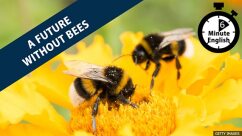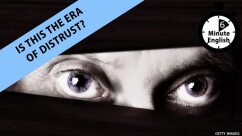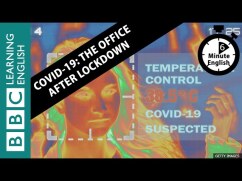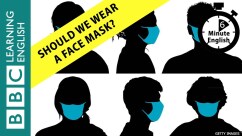english_history.pdf
english_history.mp3
Neil
Hello This is 6 Minute English from BBC Learning English I’m Neil
Georgina
And I’m Georgina
Neil
Gōdne mergen! Mé lícap pé tó métanne!
Georgina
I beg your pardon, Neil? Is something stuck in your throat?! Are you speaking a
?foreign language
Neil
Ha! Well, actually Georgina, I was saying, ‘Good morning, pleased to meet you’ in
English - but not the English you and I speak That was Anglo-Saxon, or Old
English, the earliest form of English, spoken in the Middle Ages – so, between the
5th and 15th century
Georgina
It doesn’t sound anything like the way people talk nowadays
Neil
No, but it’s surprising how many of the words we use today have survived from
Old English – beer, wine, drink, fish, bread, butter, eye, ear, mouth, head, hand,
foot, life, love, laughter, mother, daughter, sister, brother, son, father – all Anglo[1]Saxon words!
Georgina
Wow, so many everyday words! But what about the classics - Latin and Greek? I
thought a lot of English vocabulary came from there
Neil
That’s also true, but the history of English is the history of invasions – you know,
when the army of one country fights to enter and control another country
Georgina
?Like the Roman invasion of Britain
Neil
Right, and later invasions too, by Norse-speaking Vikings and Germanic Saxons
In fact, Georgina, that reminds me of my quiz question
Georgina
Go on then, but in modern English if you don’t mind…
Neil
OK Well, the year 1066 is remembered for a famous battle when the French[1]speaking Norman king, William the Conqueror, invaded England – but what is the
name of the famous battle? Is it:
?a) The Battle of Waterloo,
b) The Battle of Hastings?, or,
?c) The Battle of Trafalgar
Georgina
Hmm, my history’s not great, Neil, but I think it’s, b) The Battle of Hastings
Neil
OK, Georgina, we’ll find out ‘later’ - another Old English word there! But it’s not
just words that survive from Anglo-Saxon, it’s word endings too – the suffix, or
letters added to the end of a word to modify its meaning
Georgina
Right, like adding ‘s’ to make something plural, as in: one bird, two birds Or the
‘ness’ in ‘goodness’ and ‘happiness’ And ‘dom’, as in, ‘freedom’ and kingdom’
Neil
Poet Michael Rosen is fascinated by Old English Here he is talking about word
suffixes to Oxford University professor Andy Orchard for BBC Radio 4’s
programme, Word of Mouth
Georgina
Listen out for the proportion of modern English that comes from Anglo-Saxon
Michael Rosen
‘I walked’ – that ‘walked’ the ‘et’ bit on the end
Professor Andy Orchard
Yeah, the ‘ed’ ending Most modern verbs – if we were to say, ‘I texted my
daughter’, I mean text obviously comes from Latin… ‘I tweeted’ – we still lapse to
the Anglo-Saxon
Michael Rosen
And, generally when I’m speaking, just let’s do it in mathematical terms, what
proportion can we say is Old English? Can we say, like, about 80% in common
parlance, sorry to use a French word there?
Professor Andy Orchard
In speech it would be something like that – in the written language, less They’re
the basic building blocks of who we are and what we think
Neil
Professor Orchard estimates that 80 percent of spoken English in common
parlance comes from Anglo-Saxon In common parlance means the words and
vocabulary that most people use in ordinary, everyday conversation
Georgina
So Anglo-Saxon words are the building blocks of English - the basic parts that
are put together to make something
Neil
He also thinks that the languages we speak shape the way we see the world
Georgina
Here’s Michael Rosen and Professor Andy Orchard discussing this idea on BBC
Radio 4 programme, Word of Mouth:
Michael Rosen
Can we say that English speakers today, as I’m speaking to you now, view the
world through Anglo-Saxon eyes, through Anglo-Saxon words? Can we say
?that
Professor Andy Orchard
Well, in Old English poetry it’s always raining and I suppose it’s always raining
today There is a retrospective element, that we’re still inhabiting that worldview,
those ideas; the same words, the same simple ideas that they inhabited And
what’s extraordinary if you think about the history of English is despite the
invasions by the Norse and by the Norman, and then despite the years of empire
when we’re bringing things back, the English that we’re speaking today is still at
its root Old English word, at its heart Old English word, still very much English
Neil
Michael Rosen asks if English speakers see the world through Anglo-Saxon eyes
When we see something through someone’s eyes, we see it from their
perspective, their point of view
Georgina
And Professor Orchard replies by saying that despite all the history of invasion
and empire, the English we speak today is still Old English at heart – a phrase
used to say what something is really like
Neil
Wow! So much history crammed into six minutes! And now, time for one more
history fact
Georgina
Do you mean your quiz question, Neil? What’s the name of the famous battle of
?1066
Neil
What did you say, Georgina?
Georgina
I said b) The Battle of Hastings
Neil
Which was… the correct answer! The Battle of Hastings in 1066 played a big part
in the Norman Conquest and mixing French words into the language
Georgina
And I also know how the English ruler, King Harold, died – shot through the eye
with an arrow!
Neil
Ouch! OK, let’s recap the vocabulary, some of which exists because of invasions –
when one country enters and controls another
Georgina
A suffix is added to the end of a word to make a new word
Neil
The phrase in common parlance means using ordinary, everyday words
Georgina
Building blocks are the basic parts used to make something
Neil
To see things through someone’s eyes means, from their point of view
Georgina
And finally, at heart is used to say what something is really like
Neil
That’s all for this programme Join us again soon at 6 Minute English but for now,
‘far gesund!’ – that’s Old English for ‘goodbye’!
Georgina
Far gesund!
VOCABULARY
invasion
when an army of country uses force to enter and take control of another country
suffix
letter or group of letters added to the end of a word to make a new word
in common parlance
using the words that most people use in ordinary conversation
building blocks
the basic parts that are put together to make something
through someone’s eyes
from someone else’s point of view; how someone else would experience
something
at heart
used to say what something is really like









